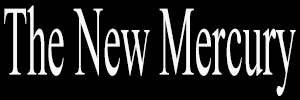
Analysis by Kyle A. Lohmeier
As resigned to my fate as I am, that the next four years will be Obama’s third term only with a shrill harpy shrieking into a microphone, I keep eyeing the night sky, hoping to see a giant meteor tumbling toward us from just beyond the atmosphere. Similarly, I keep hoping for any other event that will somehow disrupt the process and prevent either Clinton or Trump from gaining the White House. It appears that one of the best hopes for serious disruption, WikiLeaks’ promised email releases, might not live up to the hoped-for potential. Oddly, that hasn’t prevented two fairly serious and theoretically reputable sources from lying about the ten-year-old transparency organization founded by Julian Assange.
On October 7, MSNBC published an “official warning” by their “intelligence expert” and analyst Malcom Nance that claimed unequivocally that WikiLeaks is publishing falsified emails that were “already proving to be riddled with obvious forgeries” as part of those that were hacked from Clinton’s server. The “official warning” was then retweeted by MSNBC host Joy-Ann Reid and was later picked up by internet “news” site DailyNewsBin where it has gotten more than 31,000 additional views as the Clinton faithful of the internet link and repost it endlessly as though it were at all true. And, it turns out, Nance was absolutely dead wrong in his expert intelligence analysis of those emails in question.
The rub and it’s not that interesting of a story really, is that someone at a Russian news agency, Sputnik, misinterpreted the recently released WikiLeaks emails he was reading. One of those emails contained the copy-and-pasted text of a lengthy Newsweek article penned by Kurt Eichenwald, which Clinton ally Sidney Blumenthal was forwarding to Clinton Campaign Manager John Podesta. In that long story are a few sentences where Eichenwald suggested the attack on the Benghazi compound in Libya could have been prevented and therefore a congressional investigation was warranted. The problem arose when Sputnik, perhaps not understanding the “To:” and “From:” lines of the email, or perhaps on purpose, reported that the suggestion that the Benghazi attack was preventable came from Blumenthal himself and not from a Newsweek reporter. The idea that a close Clinton ally would have criticized her handling of Benghazi was picked up by Trump, who doesn’t do much fact-checking of his own anyway.
Adding to the chaos is that Eichenwald himself has claimed that an “altered document” had been used by Sputnik as part of an ongoing campaign to discredit Clinton. He never did say, according to Snopes’ account, that he suspected WikiLeaks of altering documents or publishing fake ones. Further adding to the confusion is the fact a “viral email” containing the same misrepresentation of the Newsweek article was circulating some 12 hours before Sputnik published its article containing the same information and the same erroneous attribution to Blumenthal of Eichenwald’s comments. BuzzFeed’s Jon Passantino tweeted a series of accounts of the timeline of the viral email and the first appearance of a similar story on Sputnik.
Snopes cited NYMag’s Jesse Singal, who came up with a fairly likely and innocuous scenario that explains how this snowball effect of a story began, essentially a version of the old elementary school “telephone game.”
“The fact that Trump had access to such an obscure, Russia-originating rumor is evidence that, as many people have speculated, there’s an ongoing relationship between his campaign and the Russian intelligence forces hoping to tip the election toward a Putin-admiring authoritarian who is unlikely to curtail Russia’s ambitions. That’s a great story — but, alas, if you know how the internet works these days, Occam’s razor suggests a simpler explanation: Trump, or one of his aides, saw something on Twitter, and repeated it verbatim without bothering to check the sourcing.”
In another lengthy write-up of this fiasco, this one on The Intercept, Glenn Greenwald gives a likely description of what happened at Sputnik after the viral email had surfaced and that news outlet, like countless others, were digging through Assange’s latest release.
“Once WikiLeaks announced that this second email batch was online, many news organizations (including The Intercept, along with the NYT and AP) began combing through them to find relevant information and then published articles about them. One such story was published by Sputnik, the Russian government’s international outlet similar to RT, which highlighted that Blumenthal email. But the Sputnik story inaccurately attributed the text of the Newsweek article to Blumenthal, thus suggesting that one of Clinton’s closest advisers had expressed criticism of her on Benghazi. Sputnik quickly removed the article once Eichenwald pointed out that the words were his, not Blumenthal’s. Then, in his campaign speech last night (Oct. 10), Trump made reference to the Sputnik article (hours after it was published and spread on social media), claiming (obviously inaccurately) that even Blumenthal had criticized Clinton on Benghazi,” Greenwald wrote.
The infuriating thing to me, as a journalist, is that there has been so much collusion among several other “journalists” to continue to report a lie; that so much effort has been expended to turn an error of attribution into something else, something bigger and far more nefarious. As if Trump isn’t cooked, as if Hillary isn’t going to win the election, do we really need a concerted effort among those who are supposed to be reporting facts to further steer this election her way?
More bothersome yet is the fact that in the process, these “journalists” are cavalierly impugning the integrity of an organization that, for good or ill, has endeavored to do that which journalists are supposed to do: expose the machinations of the powerful to the powerless. Julian Assange may not be an angel, but so far, the integrity of his WikiLeaks organization is still beyond reproach – despite what those in the government or their lapdog media want us to believe.

Leave a Reply